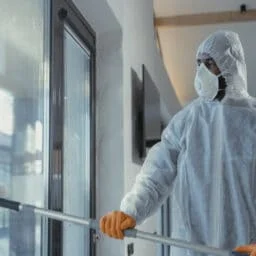WHAT IS BIOETHICS?
If we see the etymology of the word ‘bioethics,’ bio or biology means something related to life, and ethics means moral principles that govern a person’s behavior. If we go by the definition bioethics is similar to its etymology, it is ethics related to medicines, healthcare, and life sciences, like medical ethics.
HISTORY OF BIOETHICS
The word ‘bioethics’ was introduced in the year 1971 by Professor Van Rensselaer Potter of University of Wisconsin. Some say that this term was first coined in Kennedy institute of Washington DC. In 1973 this word was used in the response to Nazi atrocities in medicine. In 1978, Warren T. Reich defined bioethics as a systematic study of human conduct in the area of the life sciences and health care in his Introduction to the Encyclopedia of bioethics.
ROLE OF BIOETHICS
There are four principles of bioethics, namely, autonomy, justice, beneficence, and nonmaleficence. Autonomy deals with the fulfillment of the patient’s wishes. Justice deals with equality like fair distribution of medical products, and people’s right to know the limits of healthcare and experiments on patients and respect the moral laws which can be medical laws. Nonmaleficence and beneficence deal with a positive approach towards the patient and to provide all the benefits as well as to remove and to prevent harm.
COVID-19 AND BIOETHICS
The Covid 19 outbreak made people realize that the principles of bioethics are followed seriously in very few countries. Whether it is a case of experiment and investigation or a routine check-up, people are negligent about ethics and bioethics. Bioethics talks about justice and equality but this pandemic created chaos in the medical field with more patients and fewer facilities. The number of beds in hospitals was extremely less, the number of doctors and nurses was less compared to the patients which led the government to call final year medical students and retired doctors to support them in this perilous situation. The sudden demand for medical professionals had created ethical challenges. The doctors and other frontline workers were and are still facing problems like deficiency of personal protective equipment and no proper guidelines by the health ministry. The biggest ethical challenge medical professionals are facing is to protect patients, themselves, and their families from this extraordinary situation.
This deadly disease is dangerous and highly contagious as it spreads through respiratory droplets due to which a large number of people are getting affected and are in need of medical facilities. People with a chronic disease like diabetes, hypertension obesity are more prone to Covid 19 and the damages it causes. With more number of critical cases, hospitals need ICU and beds but no country was prepared for this, due to which bioethics became a challenge. With the surge in the number of corona cases it is difficult or nearly impossible for the medical staff to follow bioethical principles.
As cases were rising and there was no hope for a vaccine, the medical experts came out with a solution of plasma therapy. Plasma therapy is a therapy that uses blood from the recovered people from illness to cure another person who is suffering from the same illness. Bioethics plays a vital role in this case too, without the person’s consent you can’t use his plasma to cure a patient, prior consent is required. Even after acquiring consent as well as blood, the question arises is who should you provide plasma therapy. As bioethics, justice is one of its tenets and it deals with equity than equality, so the people who are suffering from chronic disease are the priority to give plasma therapy. But again in this pandemic bioethics are followed negligently people with more money are getting all the facilities.
VACCINE AND BIOETHICS
A vaccine is a biological preparation of a substance that provides immunity against infectious disease. Covid-19 not only poses a challenge to public health but also researchers and the medical scientific community and in response, researchers are trying and focusing on shortening the deadlines of vaccine development.
Vaccine development is a long process which requires years of experiments to move from preclinical to clinics and then to large scale production and selling. But the development of the corona vaccines is faster than the other vaccines due to two reasons: prior knowledge of the role of spike protein in the pathogenesis of the coronavirus and it is a highly contagious disease and the world requires vaccine. With the surge in the speed of development of vaccines, the bioethical principles are challenged. The testing of vaccines should be ethical to avoid exploitation, partnership with researchers and officials from affected countries, scientific validity, and transparency.
Due to ethical considerations, one of the most controversial models for vaccine testing is the Controlled Human Infection Model (CHIM). This model works on the fact that the participants will be exposed to the natural environment’s pathogen and include a heterogeneous population who are at higher risk of contracting the virus. Because of its design, the controlled nature of CHIM limits the possibility of generalizing to predict the effectiveness of a candidate vaccine against natural exposure. However, to justify this model, the first step is to demonstrate its high social value, since it generates not only great uncertainty but also controversy. CHIM model is explored, and Covid-19 ethics focused on legal and ethical procedures where participants provide high-quality informed consent and accept all the risks involved but in this informed consent individual rights of participants cannot be violated, and special attention should be paid to both individual rights as well as global public health emergency.
The World Health Organization (“WHO”) issued a draft of an “R & D Blueprint” entitled “Feasibility, Potential Value and Limitations of Establishing a Closely Monitored Challenge Model of Experimental COVID-19 Infection and Illness in Healthy Young Adult Volunteers” where they stated the role of CHIM in the development of vaccine and the importance of being able to guarantee the conditions to carry out these studies safely. Ethics Committees (EC) and Institutional Review Boards (IRB) play a vital role in establishing the responsibility in evaluating a clinical research protocol that does not remain with the traditional review and it deals with human subjects and ensures that sufficient protections are in place to minimize potential harm to the subjects.
DISTRIBUTION OF VACCINE
WHO has an ethical process when it comes to the distribution of vaccines too. There is a procedure established for it and that’s how everyone gets vaccinated. Equity plays an important role here. The medical staff is first to get vaccinated, since they are at a high risk, and then the cycle begins and other people get vaccinated.
ROLE OF GOVERNMENT
Government has all the powers and is signatories to various human rights policies. Bioethics is also like a human right as its principles deal with people and the welfare of public health. The government as an enduring body has various roles to play it must assure access to health and establish a proper health ministry for both public and medical professionals. It should create transparency and should expose shortcomings of past regulatory systems and clarify how those can be remedied for the future. This pandemic made the whole world realize that the health sector needs proper planning and development. The government should provide more budget to the health sector so that ethics won’t get infringed.
Author(s) Name: Shreya Sharma (Student, NMIMS, Bangalore)
References:
- Misha Ketchell, COVID-19 makes clear that bioethics must confront health disparities, (Nov 27, 2020, and 8:30 PM), https://theconversation.com/covid-19-makes-clear-that-bioethics-must-confront-health-disparities-142136
- Seth A K, Bioethics: Challenges in COVID-19 pandemic. J Integr Health Sci [serial online] (Nov 28, 2020, and 10:00 PM), https://www.jihs.in/text.asp?2020/8/1/1/288693
- Sebastián Ospina Henao, Alejandro Marín Mora, Fanny Chan Solano,and María L Ávila-Aguero, Bioethical Implications in Vaccine Development, a COVID-19 Challenge (Nov 28 ,2020, and 9:30 PM), https://www.ncbi.nlm.nih.gov/pmc/articles/PMC7575135/#REF10
- Ubaka OgboguLorian Hardcastle, Bioethics and practical justice in the post‐COVID‐19 era (Nov 27, 2020, and 11:00 PM), https://onlinelibrary.wiley.com/doi/full/10.1111/dewb.12279
















